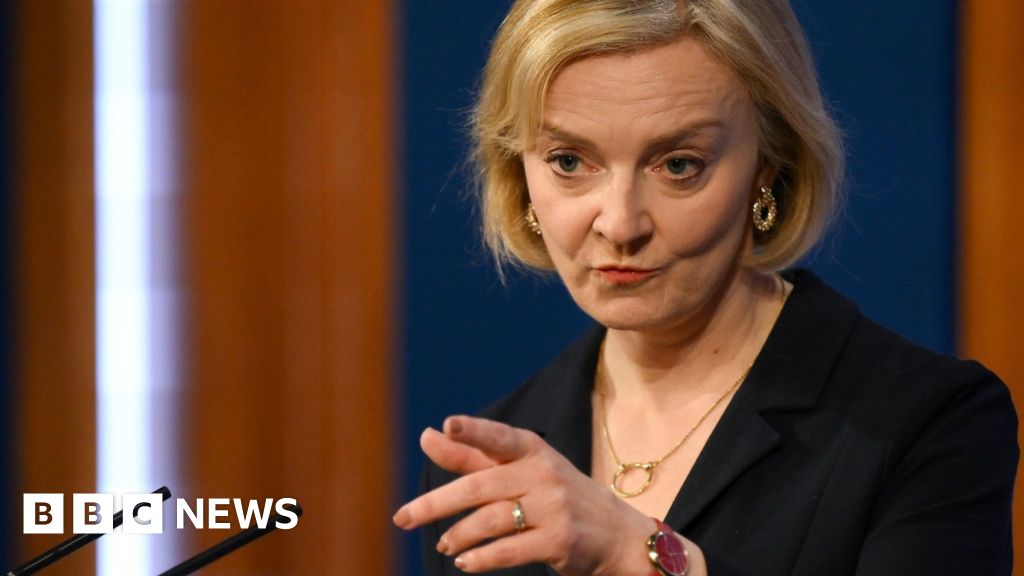Essentially she stood on a pro-growth platform. Her chancellor (finance minister) proposed a mini-budget intended to boost growth but the global markets hated it, with the result that the yields on government bonds (gilts) started to spike as the market believed it would destabilise the economy. Essentially it proposed lots of tax cuts with little indication of how they would be funded, creating a black hole in the country's finances at a time the markets didn't believe the country could afford it. Since it would almost certainly boost borrowing the markets figured that meant higher interest rates, and hence the price of gilts dropped (price and yield move inversely where bonds are concerned).
Because British pension funds are heavily invested in gilts they started to suffer. Usually the yields on gilts are very stable but they became quite unstable. That left pension funds facing margin calls, and threatened to create a spiral where more gilts were sold to cover margin calls, forcing more margin calls and ever-higher yields. The Bank of England stepped in to stabilise everything, buying gilts and thereby putting a floor under the prices (and hence a cap on the yields).
For good measure the market's response to the proposals included selling off the pound, resulting in it hitting its lowest level against the US dollar for nearly 250 years. Yep, it hit its lowest level against the dollar since the dollar came into existence.
Truss fired her chancellor and replaced him with a political rival. The first thing the political rival did was scrap most if not all of the proposals. The trouble was, Truss was tied to the proposals even as she tried to distance herself from them. Since the proposals resulted in a catastrophic collapse in the international markets' confidence in the ongoing stability of the UK economy her credibility was destroyed.
The Conservative Party couldn't force Truss out through votes of no confidence within her first year, based on the party's rules. But enough ministers put enough pressure on her that she figured the best way out was to stand down now. Had she not stood down the chances are the party's fortunes would continue to slide and she would have been ousted after exactly 12 months in office.
As things stand opinion polls indicate that, were an election held today, the Conservatives would be more or less obliterated. Whichever side of the political aisle you stand, it's not good for one party to have too much power - they need a strong opposition. The way opinion polls are right now all indications are that an election now would result in the Labour Party gaining enough power to do pretty much whatever they wanted with precious little opposition from anyone. For a rough US-based analogy, imagine one party holding 85 seats in the Senate and 428 seats in Congress - with that kind of majority they could pretty much propose legalising assassination of their rivals and get it passed.

